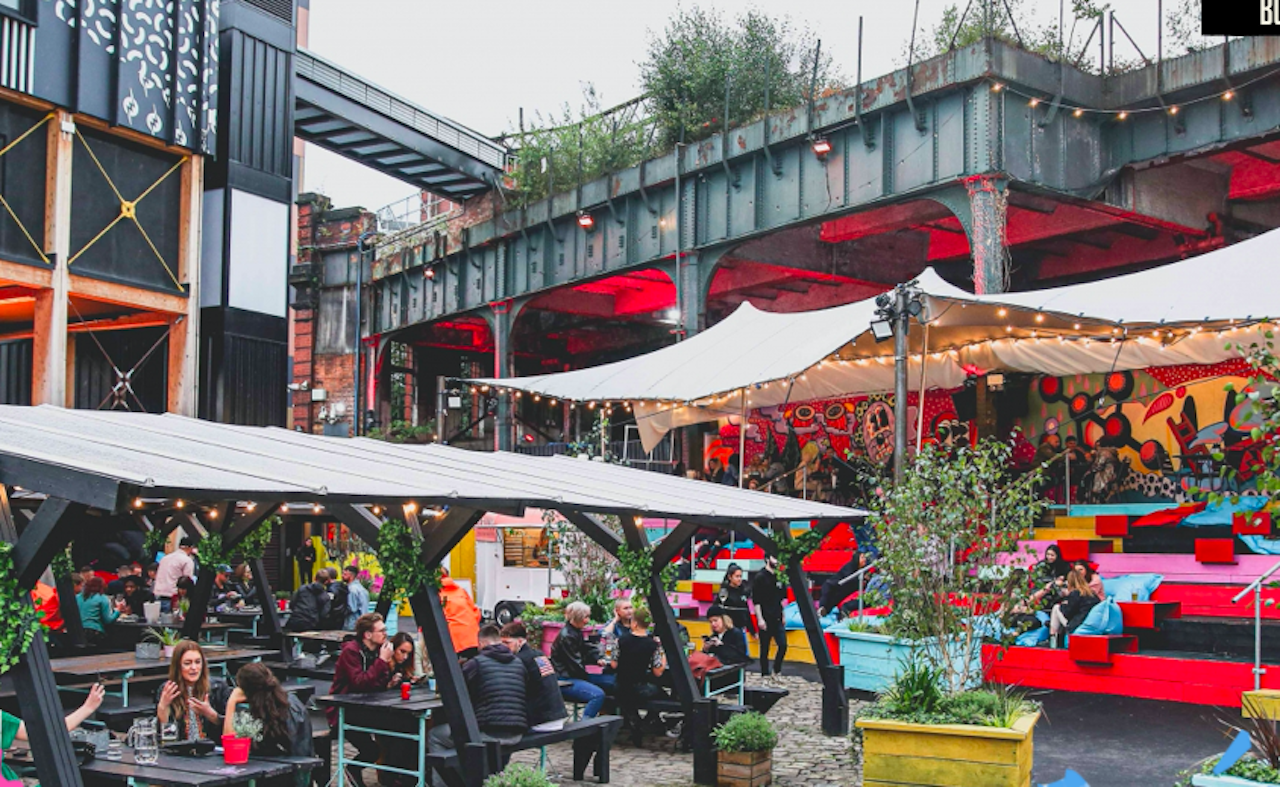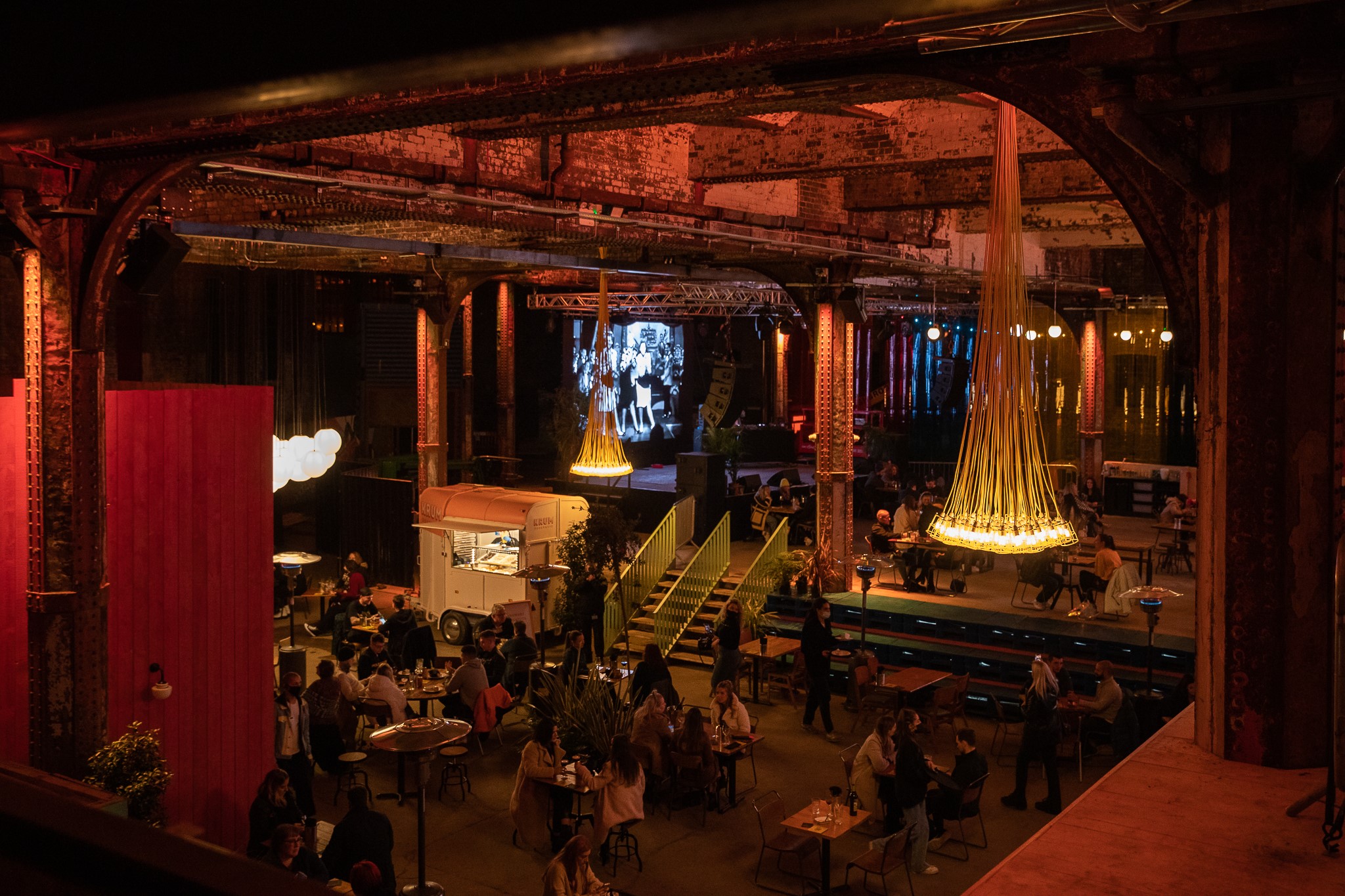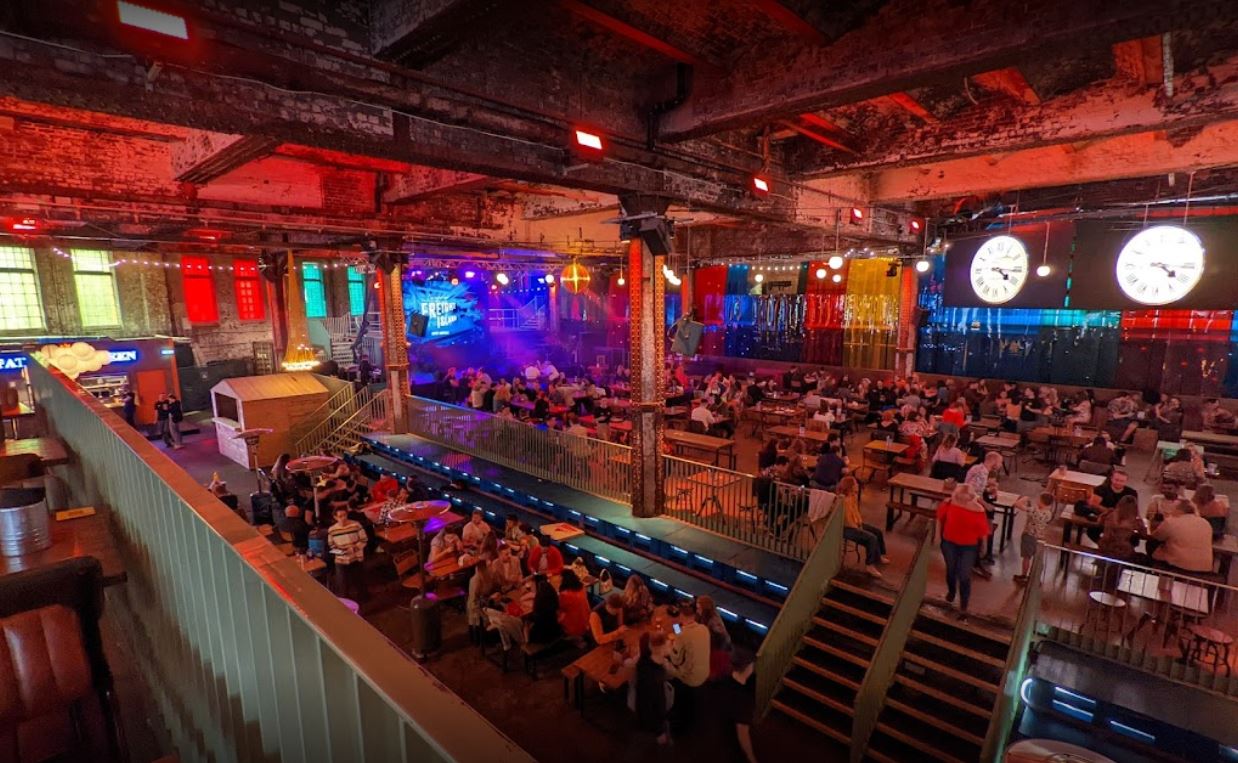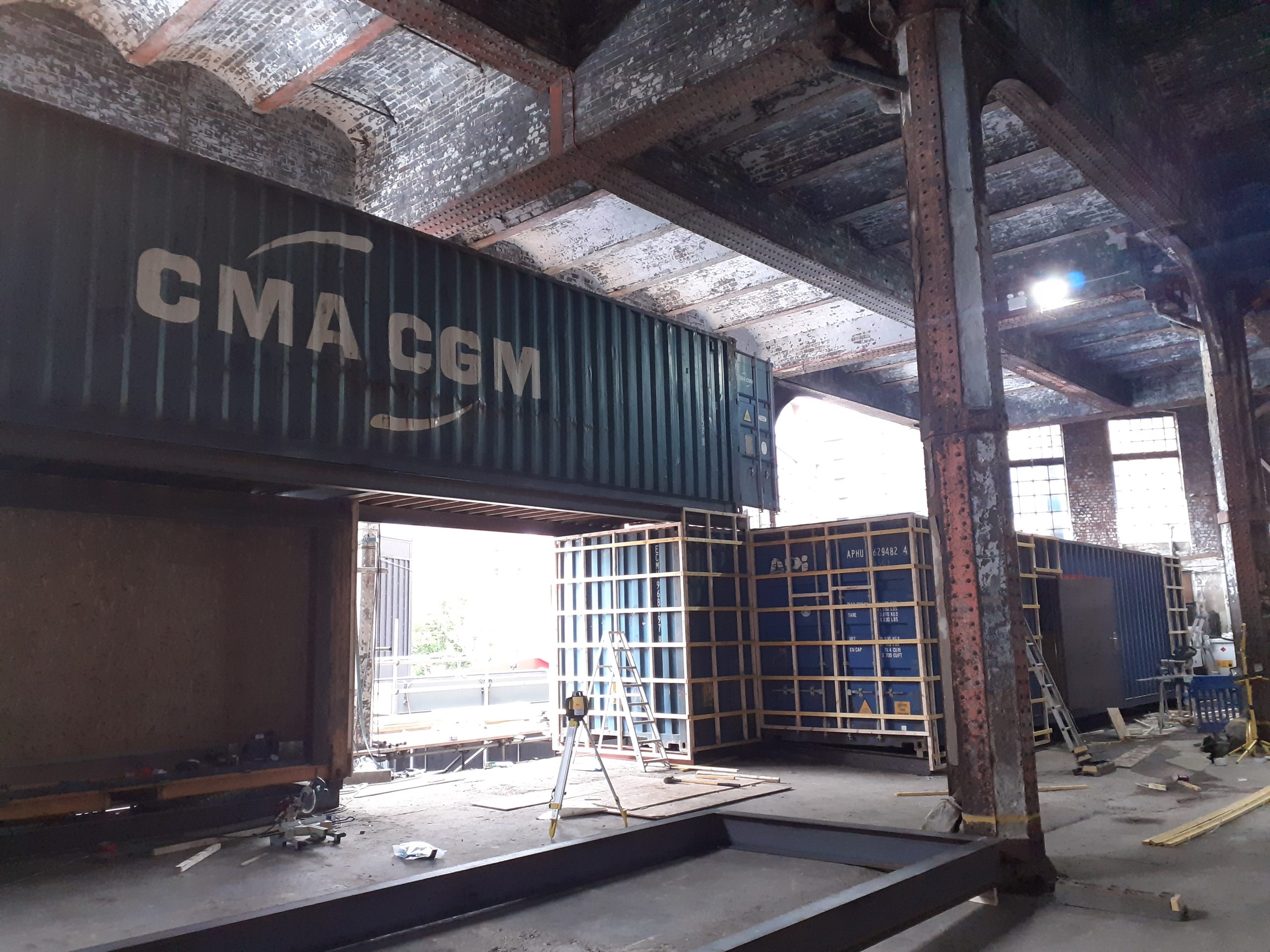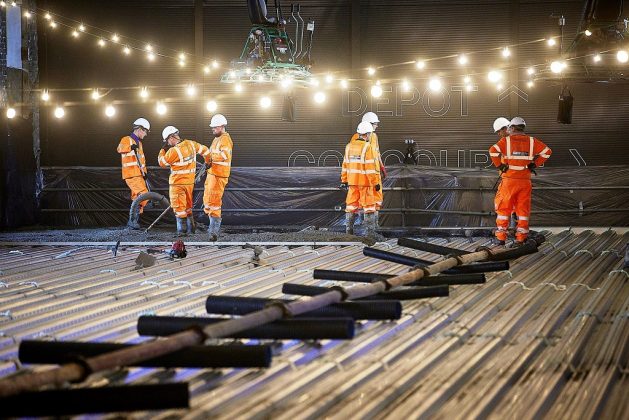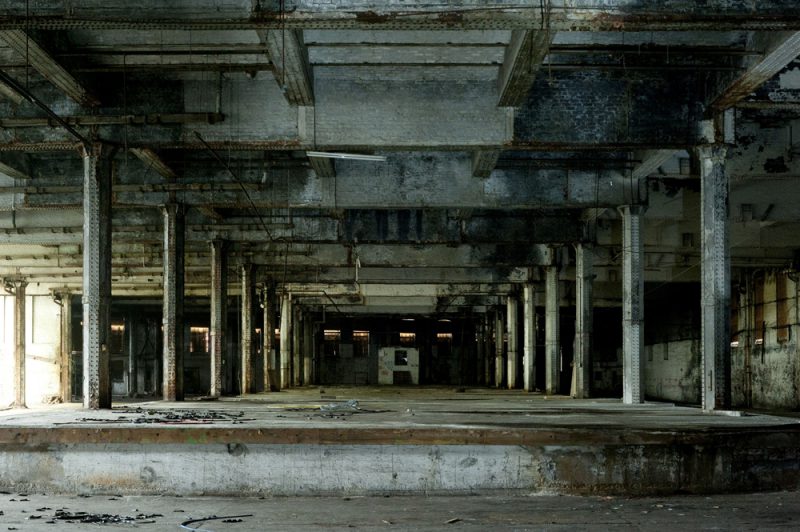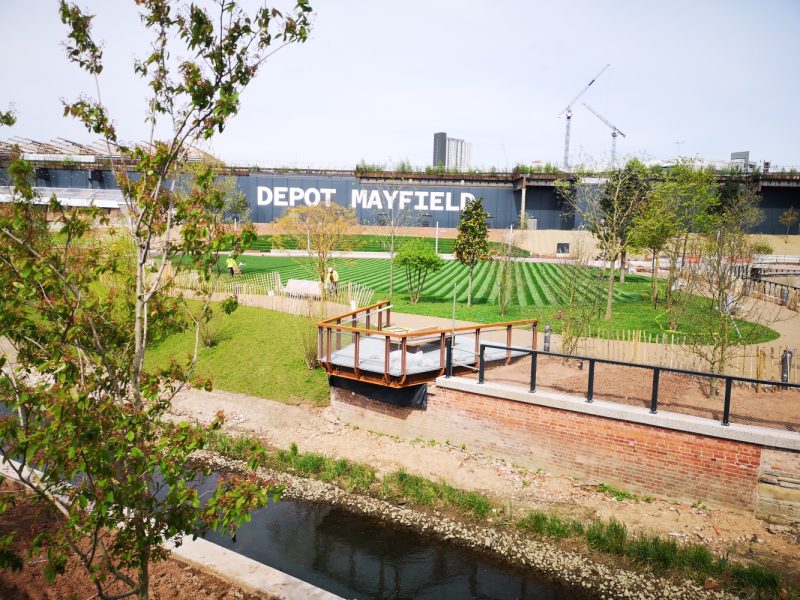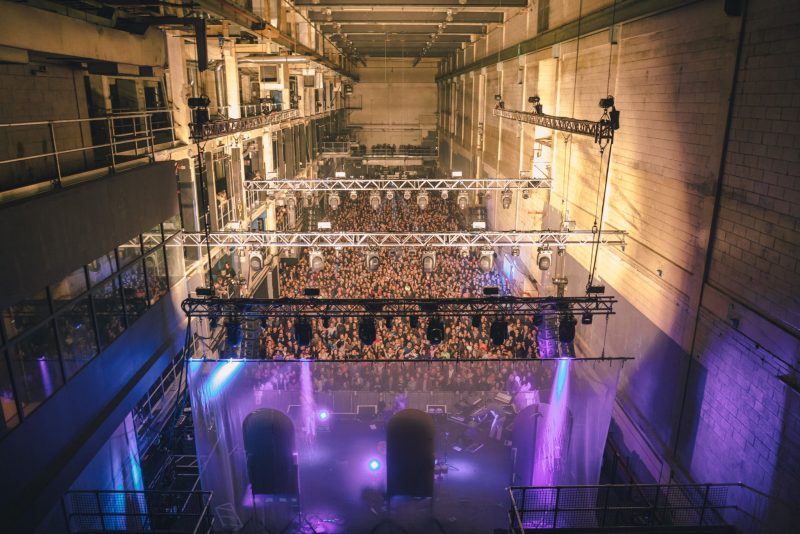The design team were tasked to create a ‘meanwhile use’ of one half of the vast Mayfield Depot building in Manchester. The ‘meanwhile use’ was proposed to utilise the space for up to 10 years and create a cultural venue space in the city centre which could be used by locals and residents. This ‘meanwhile use’ called for ‘temporary’ structures which could be dismantled and used again once the development was no longer required. Structural interventions within the existing depot building were to be avoided so that the original depot structure remained unaffected by the ‘meanwhile use’ development. Careful consideration was given to how best to utilise the existing asset of the Depot whilst not affecting or damaging the building fabric.
The outline scope was provided by the client although the creativity and design direction were heavily driven by design team. The client wanted to create a flexible mixed use space predominantly with food and beverage units and space for live music and events. There was a stipulation in the brief to be as ‘light-touch’ as possible so that when the meanwhile use is no longer needed the installations could be removed and the existing Depot building returned to its ‘original’ state.
The original programme and budget requirements were both very lean and required the design team to engineer a solution which could be installed only 12 weeks after conception and on a limited budget. Working with the project architect, we introduced the use of shipping containers to provide the neat primary structural framing solution to create F&B venues, stages, terraces and balconies. The shipping containers were used and could be brought to site and installed within days. The use of the containers allowed for less new structural materials to be sourced/fabricated and significantly reduced both the cost and programme time on the project.
